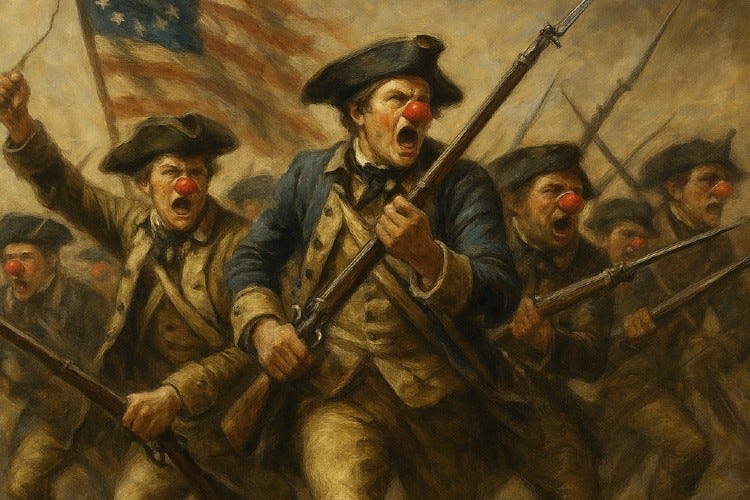The American Revolution, But With Jokes
Celebrating our shared, ridiculous history
All British problems can ultimately be traced back to France, including the problem of Britain itself. In the 1750s and ‘60s, Britain and France fought the French and Indian War, also known as “The Seven Years’ War”, also known as “The Nth round of a conflict that should probably be remember as ‘The Hundred Years’ Pissing Match’.”
By the 1760s, the British Treasury — which I will not call the “Exchequer” because (spoiler alert) we won the fucking war — was in trouble. New revenue sources were needed. As is often the case, the government decided that the best people to suffer a tax increase was “someone else”; this practice continues to this day in the form of cities soaking tourists in order to pay for sports stadiums. But while no one from Denver would think that they should have a vote on the Miami City Council, British subjects in America had a real fife up their pumpkin about not being represented in Parliament. After all: They had the obligations of being British, such as wearing ridiculous wigs, drinking enough tea to kill a Clydesdale, and believing that having genitals is ipso facto sinful. But they didn’t enjoy all the rights, specifically the right to get someone else to foot the bill for your incessant French-hating.
First came the Sugar Act of 1764. Though America had not yet become the blubbery herd of diabetic half-manatees that we are today, this was a major imposition. The Stamp Act of 1765 came next, which was not just a tax on stamps, but on anything printed on paper, such as newspapers, playing cards, and copies of The Most Ribald Escapades of Good Lady Melonbosom. Other taxes followed, all passed without the American colonists having the ability to vote in Parliament or to petition the king to use a little lube and pillow talk before he jammed it straight in.



